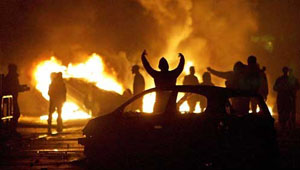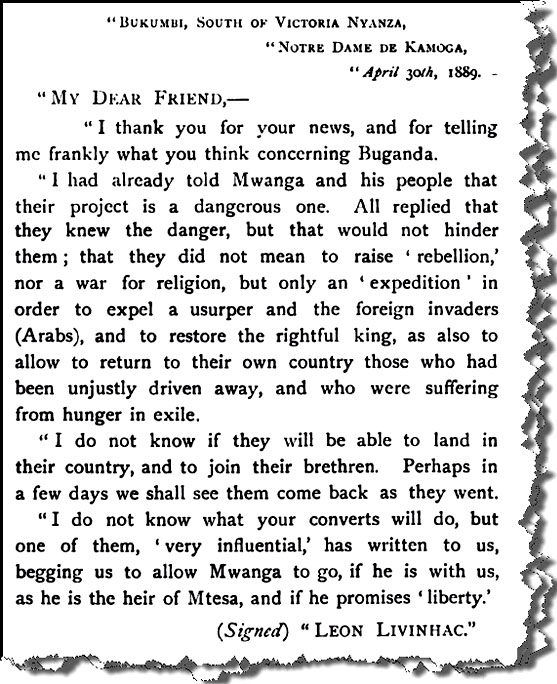
[HOME ] [ABOUT] [PHOTOS] [VIDEO] [BLOG] [HOUSTON] [TEXAS] [U.S. NEWS] [WORLD NEWS] [SPORTS] [POP CULTURE] [CONTACT]
Burundi protesters push on to phase II--What went wrong

by Joseph Earnest May 15, 2015
Newscast Media BUJUMBURA, Burundi—For a while, Burundi opposition was able to seize power from Pierre Nkurunziza as crowds celebrated the fall of a dictatorship in which dozens of lives were lost during the protests.
Many conflicting reports were released about the status of the coup that started with a mutiny. The government side said the coup was a "joke" while coup leader, Major General Godefroid Niyombare announced he was in charge. Many people asked how long it took to engineer a coup, since in other instances coups only took a few hours to be consummated.
The international community initially was silent about the coup on Wednesday. Reports continued to indicate that it was "an attempted" coup, rather than refer to it as a done deal.
According to TIME, Niyombare told the AFP he had no intention of holding on to power. He only wanted to work for “the restoration of national unity and the resumption of the electoral process in a peaceful and fair environment.”
Phase One Mistakes
So what went wrong? For any coup to succeed, the masterminds have to already have a shadow government in place even before the coup happens. Sometimes this is referred to as a transitional or interim government. Once this body is set up and a coup is successful, it usually announces reforms immediately, and schedules a date when the Constitution will be restored, or when elections will be held.
Niyombare had none of this in place, which caused more confusion among the population. Many think it was the general who triggered the coup. That's not exactly accurate—it was the people of Burundi who marched in the streets for two weeks, and with unrelenting determination, were able to impart upon the generals the courage and initiative to act on their behalf. When an opportunity presented itself, the coup occurred flawlessly.
Something interesting is, for the Whole of Wednesday May 13, the police and other military operatives had disappeared. Most were even planning their exit the country to live in exile. There was no resistance—just like the one that happened in Egypt under General Sisi. The people of Burundi had succeeded in bringing the system down, but they needed leadership to move the country forward. The first mistake made by the architects of the coup, was their failure to provide clear, decisive leadership to the citizenry, despite having won without firing a shot. Yet even if the masterminds had provided it, they did not have a shadow government formed, which was fatal to their success.
Burundians To Embark on Phase Two
According to Yahoo news, the protests to prevent Nkurunziza from pursuing a third term will continue. "Protests to reject the third term bid for Nkurunziza will continue," said Gordien Niyungeko, deputy head of Focode, one of the 300 civil society groups that backed protests. "Our movement had nothing to do with the attempted coup or the failed coup." (pop-up)
Before Libya's Gaddafi was toppled, there was a transitional government already set in place called the National Transition Council (pop-up). As the world watched, they ousted Gaddafi and immediately set up their shadow government to assume power. After measures were set in place by the NTC for free and fair elections, they handed power over to the newly-elected assembly. The ceremony marked the first peaceful power transfer in Libya's modern history. (pop-up).
When Mubarak was toppled the first time, there was a radical interim government that operated in the shadows called the Muslim Brotherhood. As radical as they were, they were able seize control of Egypt by winning over the hearts of Egyptians—without bribing them. The military stood by the Brotherhood. A new transitional government was formed, led by Mohammed Morsi. Egyptians were then given time to prepare for elections, who overwhelming chose Morsi and thrust him into the presidential palace with 52 percent of the vote. Morsi even got a call from Barack Obama, emphasizing his interest in working together with the President-elect. (pop-up)
Yet the Brotherhood would become its own worst nightmare. They started talking about introducing Sharia law. They made overtures about planting grenades in the pyramids and blowing them to dust because the "represented" evil. Morsi wouldn't even shake Hillary Clinton's hand because his strict adherence to radical Islam forbade him from shaking the hands of a woman he is not related to. Despite Obama being sympathetic to the Brotherhood, the Egyptian generals realized the new president had taken his fanaticism of radical Islam too far, and after forming a civilian shadow government, Morsi was ousted and interim President Adly Mansoor assumed power. (pop-up)
The point demonstrated above is, however controversial these figures were, because they had master plans before staging coups, they were able to completely remove the preceding governments. Their success was contigent upon having formed shadow governments even before the actual seizure of power took place.
The Measure of Success
The measure of success of a coup, therefore is not just having a large population on the side of the freedom fighters, the freedom fighters themselves must have a plan, and be willing to execute it at the drop of a dime after they secure power. Lack of a plan on the behalf of Burundi Major General Godefroid Niyombare was his Achilles heel.
In neighboring Uganda, there have also been two attempted coups that failed, particularly in the Kingdom of Buganda. When Kabaka Muteesa I was succeeded by his son Kabaka Mwanga, he was deposed in two coups: first by his brother Kiweewa, who Katikkiro (Lord Chancellor) was Nyoni Ntono. Mwanga retreated to the island of Bulingugwe on Lake Victoria. Kiweewa was then shortly ousted by the Arabs after he refused to be forcefully circumcised by them.
The second coup was under Kabaka Kalema who was rose to the throne after Kiweewa was executed by the Arab faction. Kalema's team of Mohammedans killed almost every prince and princess they could lay his hands on. Christians weren't exempt either. The Arabs had created alarm within Kalema by saying that the British would snatch the kingdom from him and crown a female, just like England had a female monarch on the throne—Queen Victoria. It was recommended that Kalema not only get rid of the princes, but also the princesses.
Kalema went on a killing spree and did not even spare his virtuous sister Nalumansi and his very own little nephews. His uncle Nuhu Mbogo (buffalo) escaped initially to Bombo then to the Earldom of Singo to escape the madness of Kalema.
When Mwanga heard what Kalema had done to his brothers, sisters, children and nephews, he forced his way back, as is chronicled in a letter dated April 30, 1889, written by Catholic Bishop Leon Livinhac as shown below:

Indeed through determination to free his people from the hands of fanatics, Mwanga, who had converted to Catholicism, was able to secure the loyalty of his subjects who, with the help of a gun dealer, Charles Henry Stokes, was able to drive out Kalema from the palace and restore order. Mika Sematimba was one of Mwanga's most loyal subjects whom Livinhac referred to in his letter as 'very influential'.
Mwanga's success was that he already had a governing structure in place before embarking on his dangerous expedition. He also had a plan to equally divide Ssese islands between Catholics and Protestants. In addition, he had secured the loyalty of the Bavuma from Buvuma Islands and the Ba-Ssese from Ssese Islands, who controlled the seas. With the support of his subjects, particularly from Earldoms of Kyaggwe and Kooki, Mwanga was able to restore the Glory of his kingdom, leaving the areas of Buvuma, Ssese, Kyaggwe and Masaka-Buddu, heavily Catholic.
Had the Burundi general secured a game plan in place, since he already had the support of the people, Nkurunziza who appears to want to be president for the sake of being president, would be history now. Of course we do not know how this will end, and if you're Nkurunziza, you'd be worried about being to live another day, since the danger he faces is likely to emanate from within.
Burundi is currently the second poorest country in the world. Add Comments>>
|
|
Join the Newscast Media social networks
for current events and multimedia content.
Copyright© Newscast Media. All Rights Reserved. Terms and Privacy Policy
